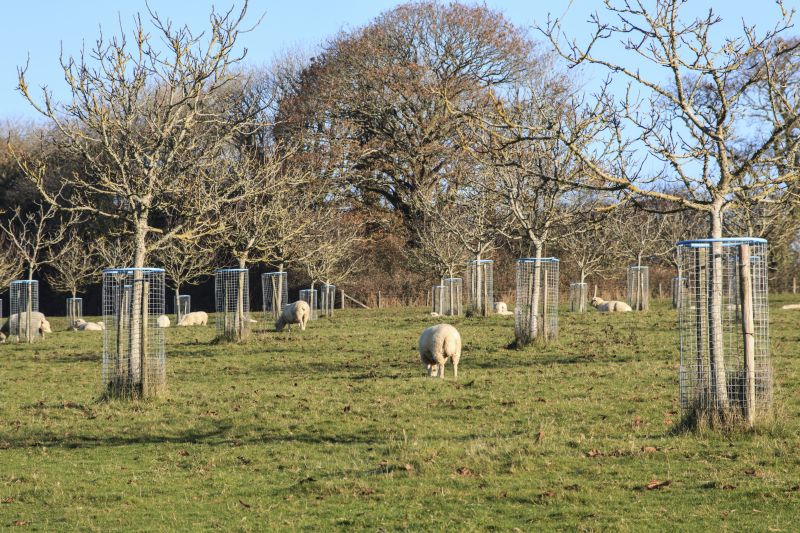
Farmers are encouraged to apply for a share of £2bn for projects that aim to reduce the industry's environmental impact and improve efficiency.
Applications are now open for farming businesses planning to lower carbon footprint in a variety of ways.
These include increased investment geared toward improving machinery and equipment, renewable energy and water management.
All aspects of sustainable forestry, including planting, are also eligible.
The fund, the Clean Growth Financing Initiative (CGFI) for Agriculture, will provide businesses with loans to fund projects and invest in sustainable tech.
It is part of Lloyds Banking Group’s £3bn total lending commitment in its ambition to support UK businesses to grow sustainably.
The scheme’s eligibility criteria are specific to agriculture. New conditions announced will also mean projects that would qualify for agri-environment schemes, such as the Countryside Stewardship Fund and Glastir, will meet the requirements.
Any application approved under CGFI Agriculture will be given a 0% arrangement fee on term loans, or carry a discount on the interest rate for asset finance.
Andrew Naylor, Managing Director Lloyds Bank Agriculture, said: “As stewards of the countryside, agricultural businesses are already invested in the environment, which is why CGFI Agriculture will align with many business growth plans.
“A wider scheme is open to all businesses, but eligibility criteria specific to agriculture have been created, making the approval conditions more relevant for farmers and rural businesses.
Mr Naylor added: “When considering any investment, a business needs to think about how it supports growth ambitions, mitigates risk or reduces cost.”
“By taking meaningful steps to protect its natural capital, a business can satisfy those objectives. It will also become more resilient, more efficient and help safeguard its future,” he said.
It comes as the farming industry aims to reach net zero across England and Wales in just over 20 years time as a contribution to a new target of 2050 for the whole of the UK.
However, major changes are needed to meet the new target, according to the UK's Committee on Climate Change.
These include a supply of low-carbon electricity, the introduction of electric vehicles, stopping biodegradable waste going to landfill, increasing tree planting and measures to reduce emissions on farms.
